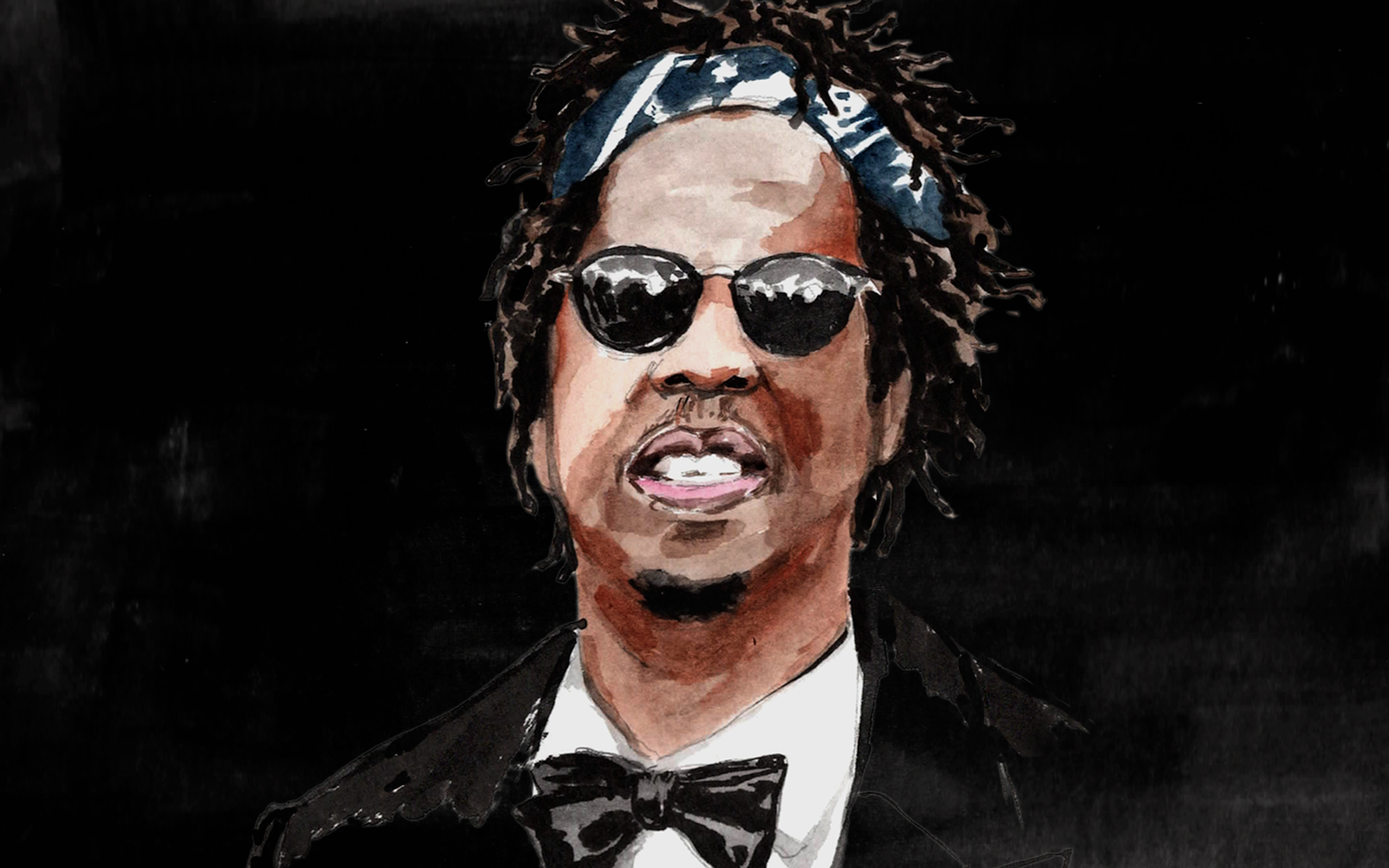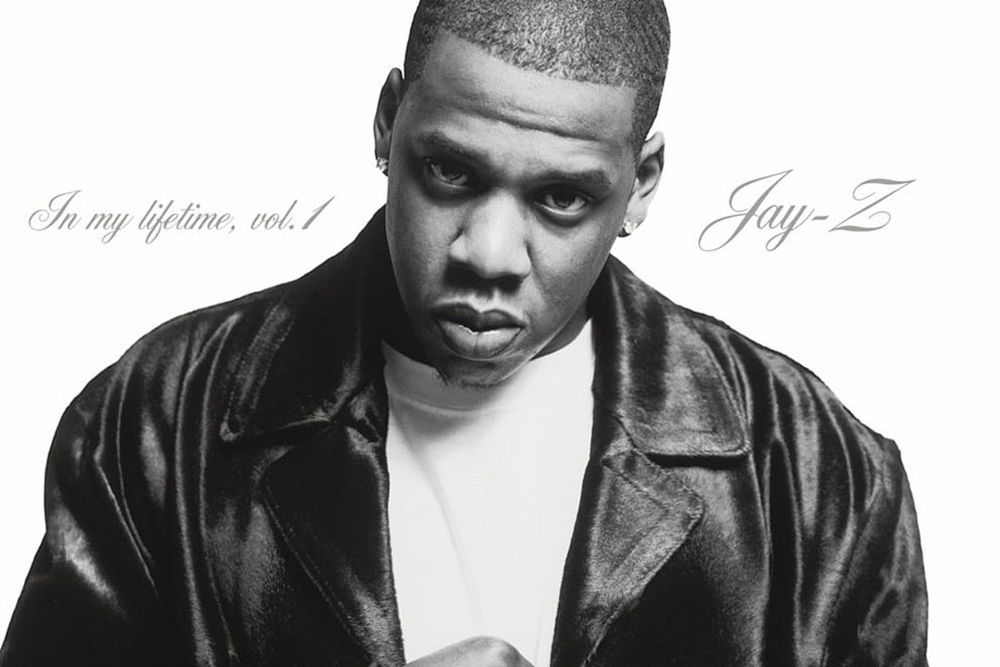Widespread acclaim had been a long time coming by the time Jay-Z dropped his debut album, Reasonable Doubt, in 1996. Marcy’s only begotten son was already 26 years old—virtually middle age for a ’90s-era MC—and had spent much of the previous decade toying with rap while pushing contraband all the way down to Virginia. When he finally got serious about a career in music, he’d sell CDs from the trunk of his off-white Lexus, rhyme for anyone willing to listen, and approach every record label he could, only to be rejected. He self-released his maiden album (with distribution from Priority Records subsidiary Freeze), making enough noise to secure a deal with Def Jam the following year. It was an upgrade that offered a larger platform and a chance to expand his personal brand and, by extension, his Roc-A-Fella imprint.
The stage was set for Jigga to take over hip-hop in 1997, and he seemed well aware. His close friend and reigning rap king Biggie Smalls was gunned down in March of that year, and as devastating as that was, the crown was up for grabs. Nearly eight months later, on Nov. 4, Jay stepped up to seize the throne with In My Lifetime, Vol. 1, an uneven sophomore LP that retained some of its classic predecessor’s street-smart slick talk while adding the shellacked ’80s pop samples that Puff Daddy and his Bad Boy ranks rode to the top. It’s a frustrating polarity, but the sole thread that ties it all together is fame—Hov’s intense desire and utter distaste for it, and all of the complicated emotions in between.
Jay-Z wasn’t shy about his desire to go pop. In fact, he was unapologetic. “Rap—you gotta understand is a business now,” he said in an interview in 1997. “We’re trying to reach a broader audience... I don’t think you should have to apologize for that.” Yet on Vol. 1, Hov sounds conflicted about his budding celebrity. He addresses it from the onset, groaning about intrusive journalists over DJ Premier’s brilliant Aaliyah flip on album intro “A Million And One Questions,” itself a humble brag about reaching a status in which people actually wonder “is that nigga really paid?” He welcomes the limelight on “The City Is Mine,” an open letter to B.I.G. that promises to carry the torch for Brooklyn. On that song, Jay boasts about having “ladies on the cock now,” but still can’t help but dwell on his perception in the press: “I read a[n] article that said I was ruining shit / But every time I look, I'm moving units in quick.”
For all of it’s gripes and grumbles about stardom, Jay-Z’s 'In My Lifetime, Vol. 1' is a revealing look into the psyche of a rap phenomenon on the brink of blowing up, yet still finding his way.
It’s not just the media that was on Jay-Z’s mind, though. While Reasonable Doubt is about Jay’s criminal capers, its spoils, and how it’s all led him to go legit with hip-hop, Vol. 1 is about life on the other side of legitimate success. He was still learning to move in new rooms with familiar and foreign perils, while attempting to reconcile his present and past lives. It’s most deliberate on the true-to-its-title extended metaphor “Rap Game/Crack Game.” Meanwhile, “Streets Is Watching” opens with the classic catch-22: “If I shoot you, I'm brainless / But if you shoot me, then you're famous.” He’s acutely aware of the new rules and pitfalls of the public arena. The reluctance to embrace the altitude is palpable.
Jay-Z’s preoccupation with the pressures of fame is most obvious right smack in the middle of the tracklist, on the album’s heart, “Lucky Me.” Here’s a somber Hov at his most reluctant, complaining about the need to wear a bulletproof vest at the club and be weary of envious ulterior motives. Twice he describes his predicament as “trapped.” Jay sighs: “Hate the price of fame, ’cause it costs too much / Can I live, without y'all niggas saying I floss too much?”
For all of that apprehension about Jay-Z’s growing star, Vol. 1 features a few of the most contrived, pop-pandering tracks in his catalog. Songs like “I Know What Girls Like” and “(Always Be My) Sunshine” sound like Biggie leftovers designed to shoot up the charts. You get the feeling that Big could’ve pulled these off—his commanding voice could make a fitting home on any instrumental—but these productions swallow Jay’s cool flow whole, reeking of forced attempts at mainstream success. It was all part of the strategy. “The overall plan is to increase his visibility and make him that crossover artist without sacrificing his full street credibility,” Jazz Young, then-product manager at Def Jam, told Billboard of Vol. 1 months before its release. Ultimately “City Is Mine” became the album’s highest charting single, hitting No. 52 on the Billboard Hot 100, two spots lower than Reasonable Doubt’s breakout hit, “Ain’t No Nigga.” Jay didn’t begin to attain the household-name status he so desperately sought until Vol. 2... Hard Knock Life dropped the following year.
For all of it’s gripes and grumbles about stardom, Jay-Z’s In My Lifetime, Vol. 1 is a transitional album, a revealing look into the psyche of a rap phenomenon on the brink of blowing up, yet still finding his way.


